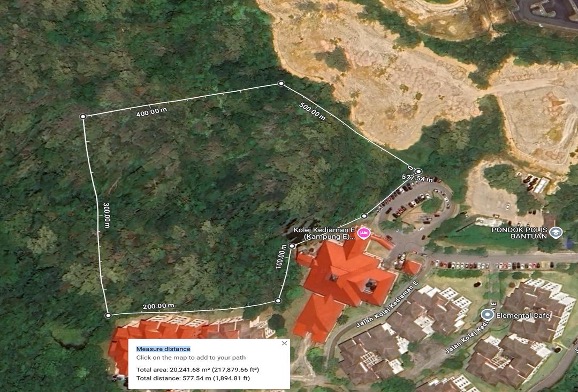LIVING LAB
BACKGROUND
Regenerative Agriculture & Biodiversity (RAgBio) Living Lab was established in 2024 to carry out research into a sustainable form of agriculture that draws from biological diversity conservation understanding, which is associated to the following SDGs.

Figure 1: SDGs associated with the concept of fruit trees on campus
This lab aims to connect academics with farming communities in Sabah and promote sustainable farming to improve soil health, biodiversity, and climate resilience.
INTRODUCTION
Creating a beautiful fruit crop garden and landscape on reclaimed soil is challenging. The soil generally requires a correct amendment, for example, bio-stimulant and compost applications. It also requires other cultural practices, such as planting fully grown fruit crop seedlings so that the trees grow and develop faster. In the present study, these ideas are combined to establish a fruit crop garden and landscape on reclaimed soil at UMS main campus to beautify the site, and at the same time, produce fruits to generate an income to pay for the garden maintenance in the future. The objectives will be: (i) to assess the effects of humic acid (HA) and indigenous microbial formulation (IMF) on the physicochemical properties and macro-micronutrient content of dairy farm effluent compost (DFEC) used for pamelo and soursop farming, and (ii) to evaluate the effects of humic acid, indigenous microbial formulation and dairy farm effluent compost on the growth and yield of pamelo and soursop gardens on reclaimed soil.
PROJECT OBJECTIVES
The aim of a project to use fruit plants in campus landscaping are as follows:
- Support urban agriculture/farming
- Strengthen education and research
- Beautification of the campus grounds
- Environmental sustainability
- Development of a living lab
- Economic returns
PROJECT LOCATION
The project site is located next to Kolej Kediaman Tun Ahmad Raffae (Kampung E), and it will cover five (5) acres with the first phase being one (1) acre.
Picture 1: Project location.
PROJECT STAKEHOLDERS
This project will involve the participation of staff, the UMS community, and collaboration with relevant departments within UMS, such as:
- Institute for Tropical Biology and Conservation (IBTP)
- Faculty of Sustainable Agriculture (FPL)
- Faculty of Science and Natural Resources (FSSA)
- Faculty of Tropical Forestry (FPT)
- Eco-Farm Management Center (ECOFARM)
- Development and Maintenance Department (JPP)
WAY FORWARD FOR UNIVERSITI MALAYSIA SABAH
Establishing fruit trees on campus necessitates a well-planned and collaborative strategy that integrates thoughtful planning, active involvement, and sustainable practices. The following are key steps to accomplish this goal:
- Conducting a feasibility study and developing a maintenance plan (2024-2025).
- Engage the campus community (2025-2035).
- Secure funding and partnerships (2025-2035).
- Integrate into campus life and curriculum (2025-2030).
